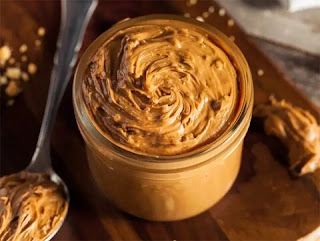Protein is an important nutrient that everyone knows about. There are many benefits to including protein-rich foods in your diet, including weight loss and muscle gain.
Fortunately, we have many delicious options that meet our nutritional needs. However, for some people, a healthy protein source can be prohibitively expensive! Do you know that many cheap things also produce healthy protein? If you are not aware of this, we will tell you about 5 things so cheap that they are a good source of protein (and that are also very easy to buy).
5 Cheap and Healthy Sources of Protein For Bodybuilding
Peanut Butter
Peanut butter is packed with protein and fits in your pocket too (cheaper). This readily available product (commercially available) contains 8 grams of protein in just two teaspoons (creamy nut butter). Peanut butter is not only an excellent source of protein but can also be used in many ways. It can be added to your favorites: Smoothie - Fruits - Gruel
Some studies have shown that people who include peanuts and peanut butter in their diets reduce the risk of heart disease and diabetes,
Eggs
Eggs are among the cheapest nutrient-dense foods in the world. Eggs are not only full of vitamins, minerals, and healthy fats, but they also contain a lot of protein. A large egg contains 6 grams of protein. Including eggs in your diet is a great way to increase your protein intake, and it can also help you cut calories and lose weight. Many studies have shown that eating eggs for breakfast allows you to consume fewer calories throughout the day.
Greek Yogurt
Greek yogurt is a delicious and inexpensive portion of food that is very beneficial for our health. It can be eaten easily, or it can be eaten by adding it to the smoothie. Yogurt is also a great source of protein. The protein content of the 224 gramme Greek yoghurt is around 17 grammes (which provides about twice the protein as regular yogurt). Look for a brand with a label that contains helpful probiotics. It can improve the health of your stomach and help you lose weight.
Sunflower Seeds
Although sunflower seeds are so small that they contain an impressive amount of protein. The nutrient-rich seed is a powerhouse of protein and nutrients such as:
Sunflowers can be conveniently purchased at most stores (online/offline). They go well with salads and yoghurt, and they can also be used in meals.
Milk
Although some people do not handle milk and other dairy products, FYI it is a cheap source of excess protein (for those who can digest). Milk is present in numerous fat fractions and is available in large quantities on the market (which is why it is a convenient protein option). One cup (244 grams) of milk contains more than 8 grams of protein, as well as vitamins and minerals which help keep bones strong and healthy.
How Much Protein Do I Need Per Day To Build Muscle
The recommended daily intake of protein in a normal diet is 0.8 to 1 grams per kilogram of body weight. For someone weighing 70 kilograms, that means 56 to 70 grams per day, which can be done very easily with normal food items (see Table 1 below). However, in recent years it has become evident that this recommendation is not optimal for people who exercise regularly. To maintain muscle mass through post-exercise muscle recovery, and ultimately to increase it, a higher daily intake is necessary. When the primary goal is to increase muscle mass through strength training (intensive), the optimal daily protein intake increases to ~ 1.6 grams per kilogram of body weight per day. And if you want to lose weight at the same time (= reduce fat mass), you can even reach 2 grams per kilogram of body mass per day. To be completely sure that you are getting enough protein, you can build in a "safety margin" and increase it to a maximum of 2.2 grams of protein per kilogram of body weight per day. For a person weighing 70 kilograms, this will correspond to 112 grams, with a maximum of 154 grams per day. Remember, however, that the extra protein also provides extra calories, which you will need to compensate by reducing the intake of carbohydrates and fat in your diet.
The extra protein intake, however, is all too often associated with power sports and muscle bulk. But in endurance sports too, a good protein intake is essential for optimal training performance. A guideline of 1.2 to 1.6 grams of protein per kilogram of body weight per day applies to an athlete (endurance), for whom the most important is not muscle building, but recovery optimal muscle after exercise. For a person weighing 70 kilograms, this corresponds to an intake of 84 to 112 grams per day. Table 1 shows various examples of products you can use to meet these daily needs. The greater the daily requirement, the more difficult it can be to get all the protein from usual foods. Protein shakes or other protein-enriched products can be a backup solution. Plus, a protein shake is much easier to take with you to training or competition than a jar of cream cheese or a serving of chicken, for example.
Related article: 20 Foods Rich in Protein












0 Comments